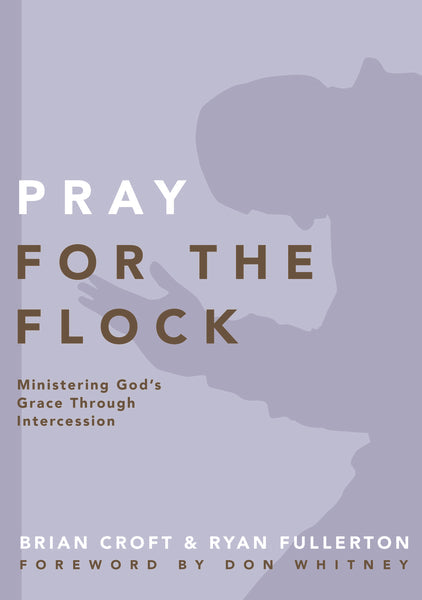I want to examine two biblical obstacles to prayer, both of them drawn from the book of 1 Peter. My hope is that you can learn to dislodge these obstacles and overcome them so you will be empowered to pray more fruitfully for your people.
- Disobedience
The first obstacle to effective prayer is really the first obstacle to every good thing in the Christian life: sin. In 1 Peter 3, the apostle gives instructions to husbands and wives: “Husbands, in the same way be considerate as you live with your wives, and treat them with respect as the weaker partner and as heirs with you of the gracious gift of life, so that nothing will hinder your prayers” (1 Peter 3:7).
Peter reminds husbands that God’s commands have teeth. He calls husbands to live with their wives in an understanding way. Peter aims for the heart by reminding husbands of an important reason for loving their spouse: “so that nothing will hinder your prayers.” I appreciate Eugene Peterson’s paraphrase in The Message: “so your prayers don’t run aground.”
We know that an omniscient God hears every sound we make. But Peter tells us that our heavenly Father isn’t moved to answer our requests when our relationships with others are broken. And this is especially true when it’s a marriage relationship. Disobedience hinders our prayers.
For believers, however, there is still hope. Since God has impressed his law on our hearts, a true child of God won’t be ignored by his heavenly Father. God listens to our prayers, but our sin can still hinder their efficacy. Sometimes the most significant thing you can do to improve your prayer life is to pick up the phone (see Matthew 5:23 – 26). You may need to call your wife to apologize. You may need to talk with a church member you’ve been avoiding. Repentance sweeps away the hindrance of sin.
This also means that having a healthy prayer life cannot be separated from the rest of your life.
- Self-Control
Peter is remarkably practical and insightful when he writes later in this letter, “The end of all things is at hand; therefore be self-controlled and sober-minded for the sake of your prayers” (1 Peter 4:7 ESV). Peter tells us that because the end of the world is upon us, we should keep praying. We keep up a dialogue with our heavenly Father because we know this world is filled with trouble and suffering. We need the help that only prayer can provide, so Peter warns us of two additional obstacles to our prayer lives. The first is self-control.
At this point, I confess I’m glad my wife is not writing this book because she could easily use me as an illustration of how a lack of self-control hinders one’s prayer life. I know all too well that going to bed late makes it difficult to wake up in the morning to pray. Continually checking our smartphones robs us of time we can devote to prayer. Eating too much makes us sleepy when we should be alert and engaged in prayer. The busyness of ministry swallows up the time we need to “give our attention to prayer and the ministry of the word” (Acts 6:4). Though my calling is to be set apart for the tasks of prayer and study of the word, I’m ashamed to say I’ve far too often been devoted to web surfing instead.
If we are to pray for our people, we must set aside undistracted time to do this. We must clear our schedule and make time to pray each day. We must intentionally plan extended times to pray at different seasons in our lives and ministries. We must “cut off” our smartphones and “gouge out” our iPads (Matthew 5:29 – 30) so the constant buzzing of incoming emails, cell phone texts, app updates, Facebook statuses, and Twitter feeds don’t destroy our own asking, seeking, and knocking (7:7).
What do you need to cut out or cut off to make you more like Elijah the prophet, “a human being, even as we are,” who “prayed earnestly” (James 5:17 – 18)?
Conclusion
I long for you to grow in prayer and to see God move mountains in your church in answer to your prayers. So listen to Jesus when he tells you to gouge out your eyes and cut off your hands to kill sin in your life (Matthew 5:29 – 30).
And never forget that our wonderful and sacrificial Shepherd (John 10:16) has died for us. He has paid the price for all of our wicked sin. He has delivered us from the guilt of sin and will keep us safe from his awful “coming wrath” (1 Thessalonians 1:10). Let these truths fill us with a sober joy that orients our hearts toward prayer.
—Brian Croft and Ryan Fullerton, Pray for the Flock. This book will help you overcome a third dangerous obstacle to your prayer life.
How to Use This Book
Share this book with a pastor who needs concrete practical advice on prayer. But Pray for the Flock is also deeply biblical – at once encouraging, challenging, and convicting. “This is a little gem of a book

